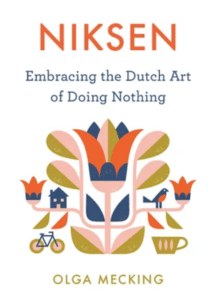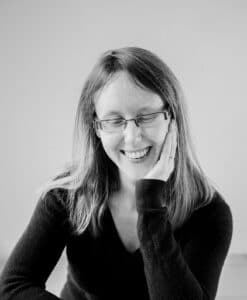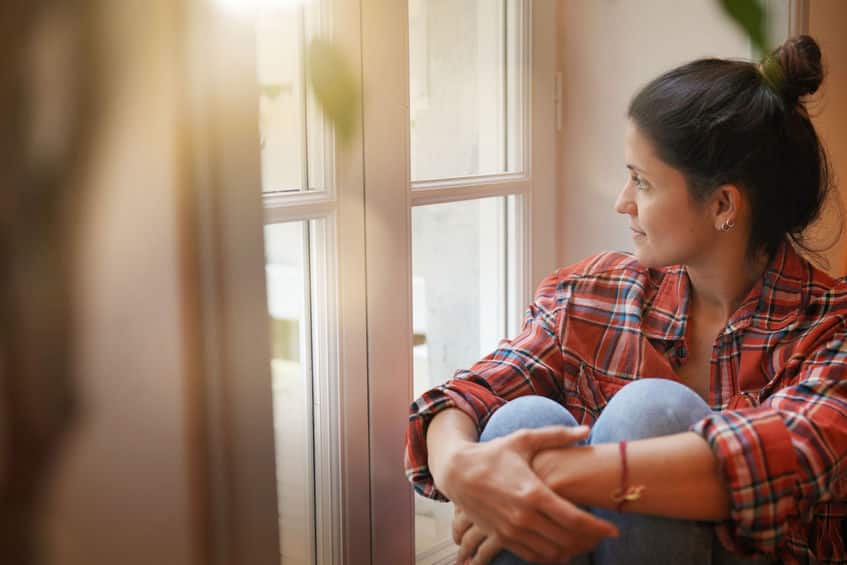These are chaotic times we’re living in. With so much going on right now, almost everyone feels overwhelmed. But what if the best solution to this chronic emotional chaos is to do nothing? That’s what Olga Mecking, author of Niksen: Embracing the Dutch Art of Doing Nothing, suggests. WellWell recently spoke to Mecking about the art of Niksen and all that we have to gain by doing a whole lot less.
What is Niksen and how were you introduced to it?
Niksen is a Dutch word that literally means doing nothing. But doing nothing without a purpose. So, you’re not on Facebook, watching a movie or reading a book. Niksen truly requires just sitting there and doing nothing, like watching the clouds or staring out the window. And you’re not nothing doing because it’s healthy or because there is a wide philosophy behind it. Niksen is doing nothing because you enjoy it, it might feel nice or just for the hell of it.
How does Niksen differ from mindfulness and meditation?
Well, I think it depends. Some say it is a form of meditation, but there are other types of meditations where you have to choose a special room or put up some specific music to prepare your mind and clear your thoughts. But for me type of meditation requires so much more work and preparation that it creates a lot of pressure. We feel this pressure that we have to be mindful at all times. Niksen is void of that.
You mentioned Niksen can be as simple as gazing out the window looking at clouds but logistically, what does practicing Niksen look like? How might someone introduce Niksen into their lives whether at home, work or elsewhere?
It depends on the person, really. Some people need to follow a schedule, so in between appointments, calls and work, they could introduce scheduled breaks for Niksen. Personally, I like to practice Niksen as I’m waiting for something or someone, in little bursts. Before the pandemic, I’d do Niksen as I waited for the bus or train, then when I’d be on them instead of a reading a book, I’d look out the window and watch people or follow the changing landscape. Whenever you have a few minutes of downtime is usually a good situation for Niksen.
How do you respond to the notion that Niksen is just excused laziness?
In my book, I mention Niksen isn’t laziness but, because of the productivity culture, people are beginning to reclaim words such as boredom, laziness or procrastination. They say they’re lazy and proud of it as a counter to that culture. But boredom and laziness are actually good for us because they can lead to better productivity by giving us a break beforehand. Sometimes we need a recharge. Niksen helps you manage expectations, reorganize your environment and think outside the box.
This is something that has popped up a lot in the wellness community lately, healthier ways to manage time and energy given the pandemic. With so many still stuck at home feeling increasingly overwhelmed and uncertain, how can Niksen uniquely combat these insecurities?
I think it’s so important to manage what you expect of yourself every day. To be okay with the fact that you’re going to be able to finish everything you’ve planned for the day. But something I mention in the book is how important it is to have an environment that helps us relax. I was actually surprised how important that environment is. So, for example, if your mobile phone isn’t always at hands reach, you’re going to use it less. Or if you have a comfy chair or a couch, you’re going to sit on it more. So those little changes in your environment can achieve big results.
The book mentions the importance of not feeling guilty about doing nothing. What does someone’s environment have on whether or not they feel guilty doing nothing?
It’s huge. Personally and professionally, our society tends to shun time off and taking personal time. It’s obviously available but at a lot of companies it’s culturally discouraged. For example, there have been studies that show when many companies started introducing paternity leave, men wouldn’t take it. It was available but men wouldn’t take it because their bosses didn’t. But when bosses and managers started to take paternity leave for themselves, their employees followed suit. So now if we surround ourselves with people who think similarly and have the same bylaws, we’re going to feel less guilty about doing nothing because we are not going to feel like you’re all alone in this.
Advice for someone who wants to give Niksen a shot?
As we mentioned, surrounding yourself with people who support and understand you and what you’re trying to do is crucial. But I also think people feel sometimes guilty when they’re trying out new trends and it’s not working for them. I think it’s important to note Niksen isn’t for everyone. When you first try it, if it’s working, wonderful. If it’s not, keep trying and practice but if it continues not to do anything for you, that’s okay. Maybe try something else. There are other things that you can do that have similar benefits. You don’t have to feel guilty about doing nothing and you don’t have to feel guilty if doing nothing isn’t for you.
 About Olga Mecking
About Olga Mecking
Olga Mecking is a Netherlands based writer, journalist, and translator. Her writing has been featured on The BBC; The Guardian, The Washington Post, New York Magazine, The Pacific Standard, The Atlantic’s CityLab, Quartz, and Yes!Magazine, among others. She is the author of Niksen: Embracing the Dutch Art of Doing Nothing.
Learn More at www.olgamecking.com













